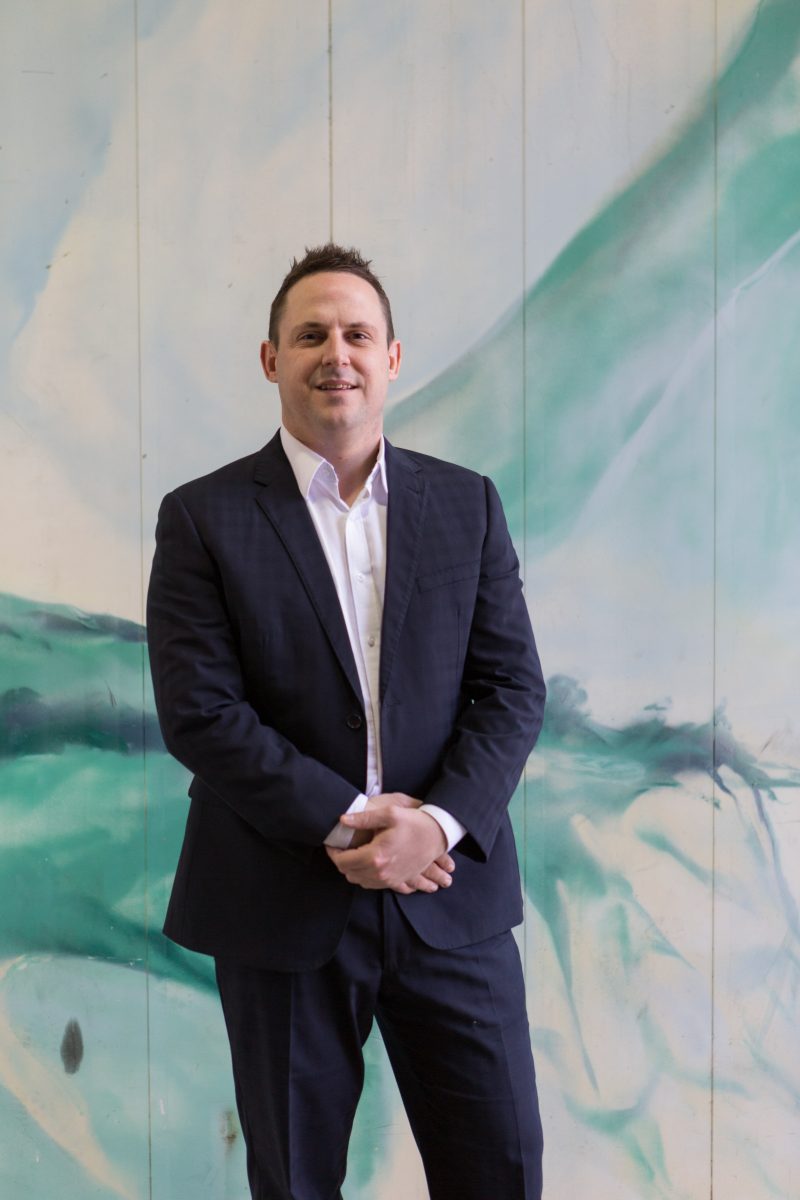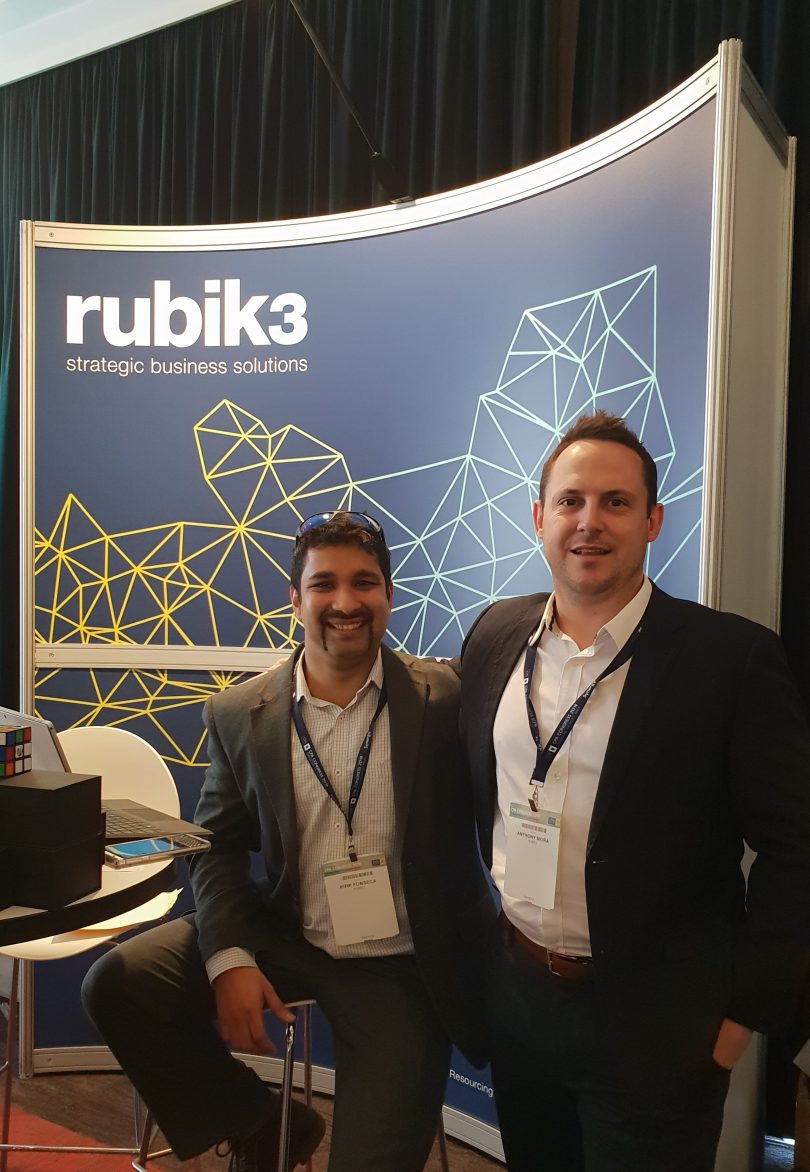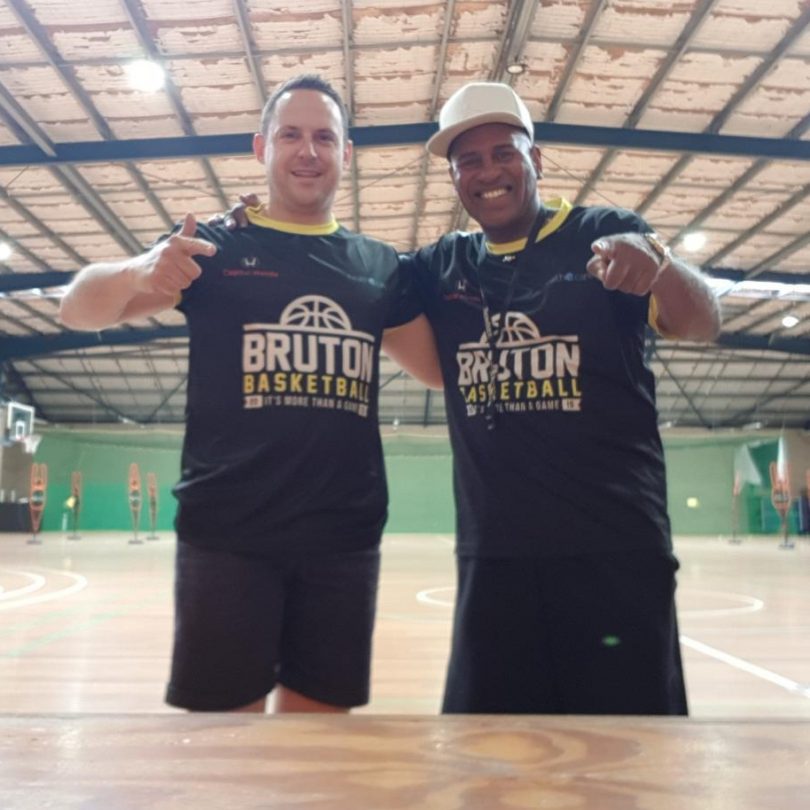
Local leader Anthony Mora volunteers with the Cancer Council, including with Daffodil Day. Photo: Provided by Rubik3.
If there’s anything that drives Anthony Mora, it’s taking care of people in business.
“I don’t believe a person should ever be treated as a transaction,” says Anthony, Associate Partner of Rubik3. “In my books, it’s always about relationships and what we can do for each other. Taking care of people is the way of the future in business.”
Anthony joined Rubik3 — a professional services consulting firm that helps clients improve their organisational maturity — after seven strong years with a large recruitment firm. He was attracted to Rubik3 for its ‘family feel’ and caring approach to both its employees and clients.
“In my last position in recruitment, I was the top performer in the Canberra office and in the top five nationally,” says Anthony. “It was all driven by key performance indicators. However, I found myself wanting to work for a national firm that produces excellent results through a relationship focus.”

Anthony Mora, Associate Partner of Rubik3. Photo: Jack Mohr.
At Rubik3, Anthony is developing the company’s resourcing business line, helping clients with their workforce planning and getting prepared for what could happen after the next election.
“Workforce planning can be challenging, especially with Canberra being a public service town and an election just around the corner, which may well have a big impact on workforce planning,” says Anthony. “There could be a shift towards less contracting positions in government and more permanent placements. Businesses need to be prepared for this.”
So what exactly is workforce planning and why is it important?
Anthony says workforce planning is a continual process used to align the needs and priorities of an organisation with those of its workforce. It includes meeting legislative, regulatory, service, production and other organisational requirements and objectives.

Rubik3 Associate Partners Kirk Fonseca and Anthony Mora at CPA Canberra. Photo: Provided by Rubik3.
“When looking to the future, public and private sector businesses need to think about the pros and cons of different workforce planning approaches,” says Anthony. “The current workforce can be heavily contractor-driven, but I believe this has a huge impact on long-term efficiencies. Contractors are paid well. They build corporate knowledge and often take it all with them when they move on, leaving an organisation high and dry. Is this the smartest approach?”
Anthony also believes that in certain circumstances, a contractor-driven environment can also affect the morale of permanent staff in an organisation, including with graduates looking to establish a career path.
“Some graduates who want a career in the public service can find themselves in a position where they can’t advance up the ladder because the person above them is a contractor,” says Anthony. “When it comes to advancing, there’s nowhere for them to go and so they seek alternate opportunities.”
Another potential detrimental effect of a contractor-driven workforce is its impact on building skill sets from within.
“Contractors should be used for project and seasonal requirements, with ‘business-as-usual’ positions staffed with permanent employees,” says Anthony. “This would allow organisations to retain the internal capability they need. My advice is that organisations should build internal capability, starting now.”
With these scenarios in mind, Rubik3 has a unique approach to providing workforce planning services.
“We have three service streams and can provide one or a combination,” says Anthony. “We provide strategic resourcing, capability consulting and business services. Regardless of need, we give clients a boutique consulting experience by digging deep to understand their business environment and operations. We then develop sustainable solutions that help clients cope with today’s dynamic and constantly changing business atmosphere.”
Rubik3’s leadership team has domestic and international experience in business, leadership, change management and outcome-focused delivery. Consultancy services cover workforce planning, project management, office delivery, and ICT and organisation change management.

Giving back to the community is near and dear to Anthony’s heart, including support for Bruton basketball. Photo: Provided by Rubik3.
Another feature that attracted Anthony to Rubik3 is the firm’s commitment to giving back, something that is near and dear to his heart. Rubik3 has strong links with the community, with a focus on education, employment and mentoring to Indigenous youth and young adults.
Rubik3 was the main sponsor of the Tuggeranong Hawks in 2018, for example, and is the main sponsor of the annual Indigenous round for the football club. They also support other local organisations such as the Indigenous Reading Project, which helps kids improve their literacy.
Anthony also applies his passion for basketball and his community spirit by supporting Bruton Basketball. Legendary basketball player Cal Bruton runs basketball camps for refugee and Indigenous kids and Anthony volunteers his time to them. He has also volunteered to support the Cancer Council for the past five years, specifically with Daffodil Day.
Anthony’s volunteer commitment is in line with his passion for providing community support: “If you take care of people, they will take care of you.”
Original Article published by Wendy Johnson on The RiotACT.


What's Your Opinion?